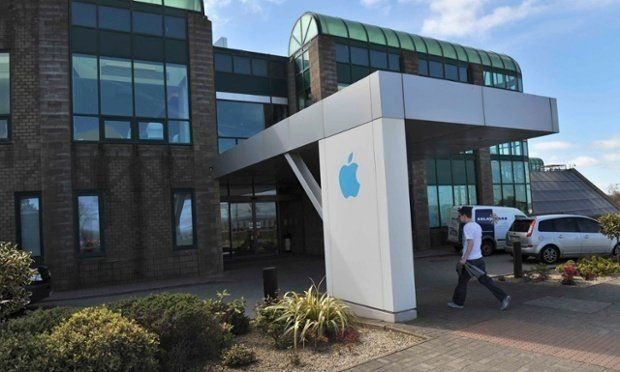The European Commission has proposed measures to "to ensure that all companies pay fair tax in the EU," a move that will undoubtedly affect Apple.
The European Commission has announced its proposal for a reform to change the way social media, online content providers and other Internet-related companies are taxed. The proposal, which had been rumored previously, would require companies to pay taxes throughout the EU, rather than directly from where they place their European headquarters.
The proposal includes two major policy prescriptions: "Reform corporate tax rules so that profits are registered and taxed where businesses have significant interaction with users through digital channels," and the levying of "an interim tax which covers the main digital activities that currently escape tax altogether in the EU." It is meant to establish "a real link between where digital profits are made and where they are taxed."
The EC proposal does not mention any specific companies, but states that the common reform will apply to companies with "7 million euros [$8.6 million] in annual revenues in a Member State" and "more than 100,000 users in a Member State in a taxable year," as well as "over 3000 business contracts for digital services are created between the company and business users in a taxable year." These criteria would seem to apply to Apple in most, if not all, EU member states.
The interim tax would apply to companies with "total annual worldwide revenues of 750 million euros ($922 million) and EU revenues of 50 million euros ($61.5 million.)" Apple, is well over both of those numbers.
The proposal still must be submitted to the European Parliament for ratification.
Apple has long located its European headquarters in Ireland and used that country to minimize the tax it pays across the EU. the legal maneuver led to a dispute over taxation and collections with the European Commission that has been ongoing since 2016.
 Stephen Silver
Stephen Silver








 Marko Zivkovic
Marko Zivkovic
 Christine McKee
Christine McKee
 Andrew Orr
Andrew Orr
 Andrew O'Hara
Andrew O'Hara
 William Gallagher
William Gallagher

 Mike Wuerthele
Mike Wuerthele
 Bon Adamson
Bon Adamson




-m.jpg)



16 Comments
I wish states would start charging for purchases from online websites like Amazon while local brick and mortar stores sales have suffered forcing many family operated businesses to close. Bezos the richest man in the world because he built an empire on tax evasion.
"pay fair tax"
Yeah, good one. Funny.
You pay tax on the money you make and then you pay tax on the things you buy.
How is taking 2 bites of my money "fair" considering that they do nothing for it?
The EU is nuts.
Lets hope Italy leaves them fast.
This is a no-brainer and Apple’s not dumb. Watch the price of Apple products change to cover the new duties. Of course it will be mixed in with exchange rates so as not to be sooooo transparent that is what happened.